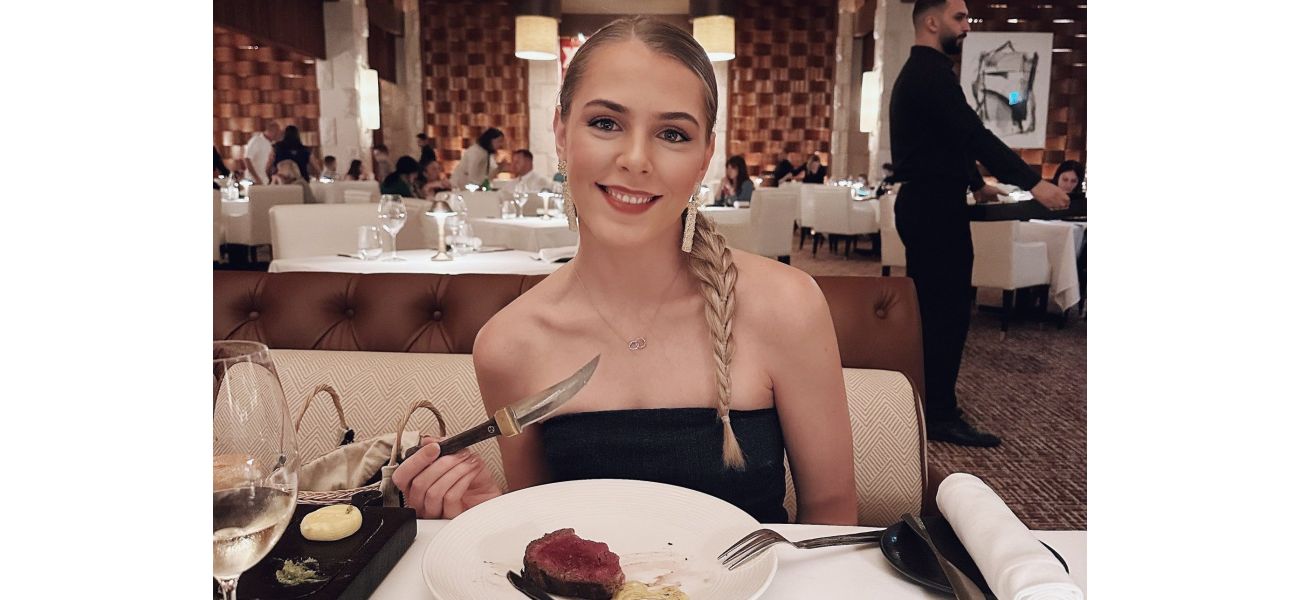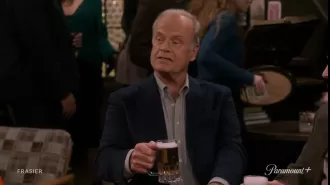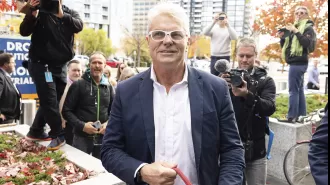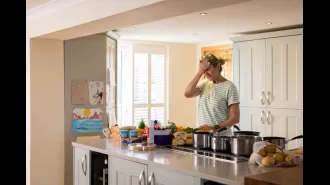People have labeled me as a "red flag" in the dating world due to my health issue.
I used to avoid mentioning my celiac disease while using different apps.
September 6th 2024.

When it comes to dating, I always thought I would be seen as a catch. After all, I show up on time, ask my date questions, never ghost anyone, and don't expect them to foot the entire bill. So, imagine my surprise when I found out that a fifth of the UK population considers me a red flag.
But let me tell you, I never thought being gluten-free would be the reason for it. I have a successful career, great friends, and I don't live with my parents. I'm also good with my money and have a kind and caring personality. So why do people see me as a red flag? It's because I have coeliac disease.
Unlike those who see gluten-free as a lifestyle choice, for me, it's a health condition. It's an autoimmune disease that causes my immune system to attack my healthy tissues whenever I consume gluten. This damages my gut and prevents me from absorbing nutrients from my food. Not following a gluten-free diet could even increase my risk of cancer. So, you can understand why I take it seriously.
But dating has been a daunting experience for me. According to Warburton's research, a third of Brits would avoid inviting someone over for dinner if they were gluten-free. And a quarter would ask them to bring their own food. More than half of Brits don't even know what to cook for someone who is gluten-free. It's no wonder that I've faced challenges in the dating world because of my dietary restrictions.
I was diagnosed with coeliac disease at 19, after being sick for two years. It was also a time when I was single and trying my hand at dating. I remember flirting with a friend of a friend at a university bar. He seemed like a catch, tall and handsome with decent chat. But things took a turn when he offered me a sip of his beer. I politely declined, saying that I couldn't drink it because I was coeliac. His response was shocking. He pushed his pint in my face and said, "What do you mean you can't? Don't be such a p**sy." It was a moment of blatant disrespect that I'll never forget. Sadly, it wasn't an isolated incident.
I've lost count of the times I've been asked, "What can you even eat?" It's a question that always makes me sigh. But that's not all. I've had to book restaurants myself because my date refused to do a simple Google search for gluten-free options. And when I do tell them about my dietary needs, the responses are often generic and insensitive. "Your life must be so miserable" or "I think I'd just keep eating gluten" are just a few examples. It's frustrating and disheartening.
But thankfully, there have been some dates who were considerate of my needs. One of them was my now-partner, who went out of his way to make sure I was comfortable. He even got his coeliac co-worker to recommend gluten-free restaurants in London. And our first date was at a casual Vietnamese chain with an almost entirely gluten-free menu. It was a sweet gesture that showed me he cared about my well-being.
However, dating someone who understands and respects my dietary needs is just the first hurdle. Meeting their family and trying to make a good impression is a whole other challenge. It's not easy to explain to someone's parents what they can and can't cook for me, and how they have to prepare it. A simple mistake can mean I can't eat the meal they've made, which can seem like I'm rejecting their efforts. It takes time to learn how to cater to someone with a strict dietary requirement.
But despite having a disease, I often find myself trying to make accommodations for others in the dating world. It should be the other way around. I'm not hard to date or cook for; it just takes a little effort. And if someone can't do that, then maybe they're the red flag.
But let me tell you, I never thought being gluten-free would be the reason for it. I have a successful career, great friends, and I don't live with my parents. I'm also good with my money and have a kind and caring personality. So why do people see me as a red flag? It's because I have coeliac disease.
Unlike those who see gluten-free as a lifestyle choice, for me, it's a health condition. It's an autoimmune disease that causes my immune system to attack my healthy tissues whenever I consume gluten. This damages my gut and prevents me from absorbing nutrients from my food. Not following a gluten-free diet could even increase my risk of cancer. So, you can understand why I take it seriously.
But dating has been a daunting experience for me. According to Warburton's research, a third of Brits would avoid inviting someone over for dinner if they were gluten-free. And a quarter would ask them to bring their own food. More than half of Brits don't even know what to cook for someone who is gluten-free. It's no wonder that I've faced challenges in the dating world because of my dietary restrictions.
I was diagnosed with coeliac disease at 19, after being sick for two years. It was also a time when I was single and trying my hand at dating. I remember flirting with a friend of a friend at a university bar. He seemed like a catch, tall and handsome with decent chat. But things took a turn when he offered me a sip of his beer. I politely declined, saying that I couldn't drink it because I was coeliac. His response was shocking. He pushed his pint in my face and said, "What do you mean you can't? Don't be such a p**sy." It was a moment of blatant disrespect that I'll never forget. Sadly, it wasn't an isolated incident.
I've lost count of the times I've been asked, "What can you even eat?" It's a question that always makes me sigh. But that's not all. I've had to book restaurants myself because my date refused to do a simple Google search for gluten-free options. And when I do tell them about my dietary needs, the responses are often generic and insensitive. "Your life must be so miserable" or "I think I'd just keep eating gluten" are just a few examples. It's frustrating and disheartening.
But thankfully, there have been some dates who were considerate of my needs. One of them was my now-partner, who went out of his way to make sure I was comfortable. He even got his coeliac co-worker to recommend gluten-free restaurants in London. And our first date was at a casual Vietnamese chain with an almost entirely gluten-free menu. It was a sweet gesture that showed me he cared about my well-being.
However, dating someone who understands and respects my dietary needs is just the first hurdle. Meeting their family and trying to make a good impression is a whole other challenge. It's not easy to explain to someone's parents what they can and can't cook for me, and how they have to prepare it. A simple mistake can mean I can't eat the meal they've made, which can seem like I'm rejecting their efforts. It takes time to learn how to cater to someone with a strict dietary requirement.
But despite having a disease, I often find myself trying to make accommodations for others in the dating world. It should be the other way around. I'm not hard to date or cook for; it just takes a little effort. And if someone can't do that, then maybe they're the red flag.
[This article has been trending online recently and has been generated with AI. Your feed is customized.]
[Generative AI is experimental.]
0
0
Submit Comment





